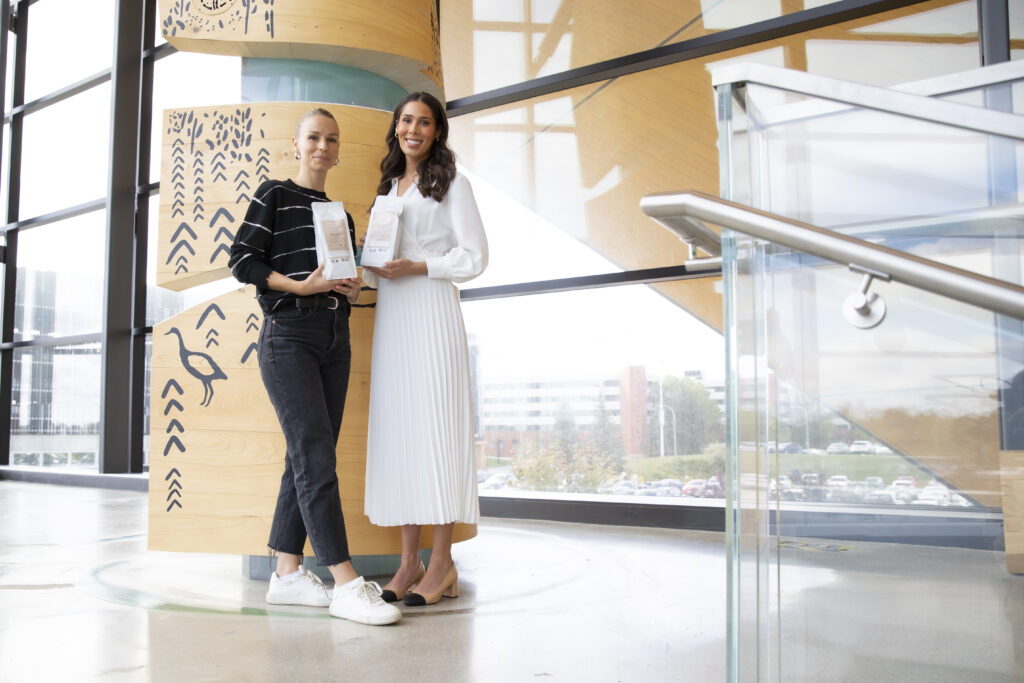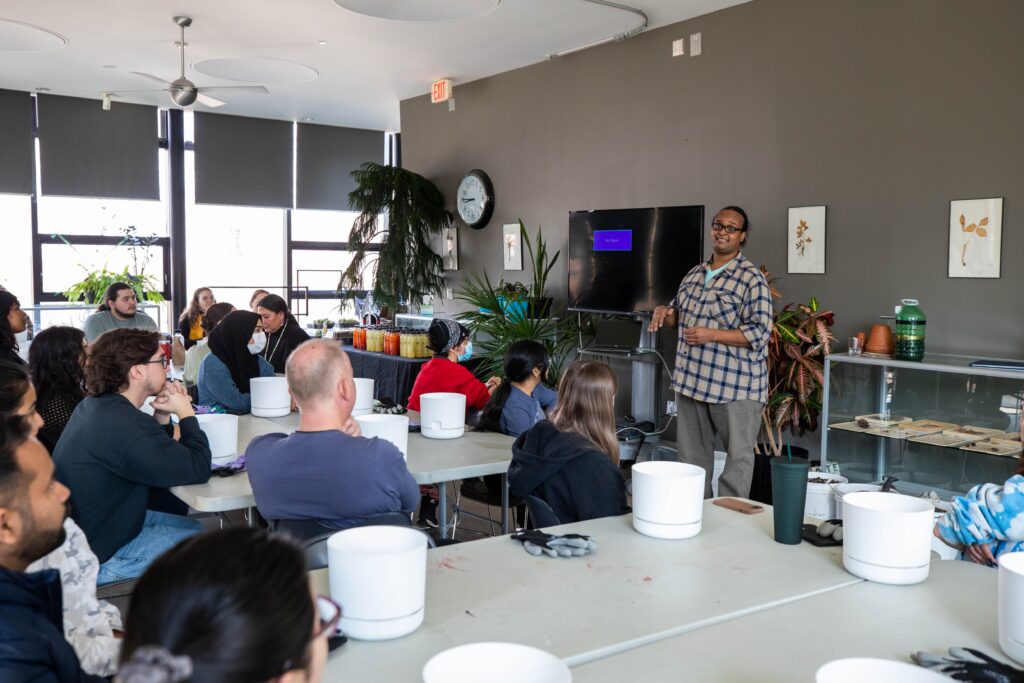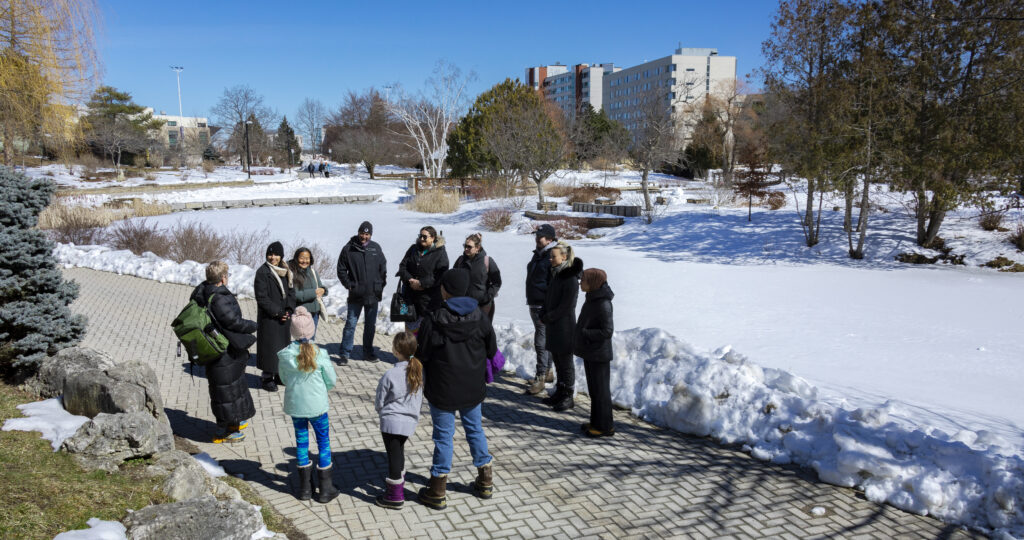Sustainability and Inclusion: A Journey of Transformation
Environmental issues disproportionately affect marginalized communities, and there is a complex relationship between human and environmental systems. Lindsay Walker, Director of Sustainability at Humber College, advocates for ongoing efforts to connect sustainability with social equity, emphasizing the importance of inclusivity and engagement in building a truly sustainable future.
How does one link sustainability with Equity, Diversity, Inclusion and Belonging (EDIB)? As sustainability professionals, we were not always historically taught those direct connections in our education. Humber College has recently undergone a reorganization that has shifted the responsibility of sustainability and redefined its purpose within the institution. The Sustainability team has now transitioned from the Capital Development and Facilities Management department to the Inclusion and Belonging portfolio, showing that sustainability and social equity are intrinsically linked.
There is no sustainability without equity. Environmental degradation and the consequences of climate change disproportionately impact disadvantaged and marginalized communities who are already facing social and economic disparities. Lack of access to clean water, inadequate healthcare, and limited education exacerbate the vulnerability of these communities to environmental challenges. To create a sustainable future, we need to confront these disparities head-on.
By transitioning the Office of Sustainability to the Inclusion and Belonging portfolio we are bringing an intersectional lens to our work. It acknowledges the relationship between human and environmental systems, which are intertwined, co-evolving and complex.
Sustainability is more than just minimizing our environmental footprint. As a post-secondary institution, we have a critical role to play in reducing inequalities through education, and this transition underscores that commitment. This shift did not happen overnight. As individuals, we needed to show up, listen, learn, and build relationships. Over the years, through growth in the EDIB view of sustainability, small actions have shaped our collective understanding.
One of those small actions was introducing Birch Bark coffee across campus and at all catered campus events. Birch Bark is an Indigenous-owned coffee brand that donates a portion of proceeds from every bag sold towards the purchase of water purification units for Indigenous peoples living in communities under boil water advisories. Ensuring the college’s food options are reflective of Humber’s diverse population is a priority for us.

In an increasingly disconnected world, connections are vital to bring attention and care to sustainability. When people feel a deep connection to a person or place, they are more inclined to invest in their well-being. Even seemingly minor projects like Humber’s pen recycling program can have massive impacts on engagement and excitement. One of our staff members had an idea for students and staff to collect all writing instruments (pens, markers, highlighters, mechanical pencils) once empty, place them in a bin, and once the bin was full, recycle them. Recycling pens won’t solve climate change, but it sparked conversations about sustainability and got people involved and enthusiastic. Small initiatives can pave the way for more substantial change.
“Small initiatives can pave the way for more substantial change”
Lindsay Walker
Not all ideas will garner the same level of interest, but the key is to listen, adapt and continue to build upon relationships. Within an organization, we are all working towards the same goals. By contributing and supporting the work of others, we can also enhance our own work and create a culture of mutual understanding and cooperation. While the success of Birch Bark coffee or the pen recycling program are small, they demonstrate how meaningful connections can be established and from there, discussions about bigger change can be had. This is reflective of the Indigenous practice of Mino Nawendiwin – Building Good Relationships.
When I began my journey at Humber more than 11 years ago, I was the only full-time staff member dedicated to sustainability, as was the case in many organizations. At that time, sustainability was part of the facilities department given its direct influence over buildings, energy, water, waste and carbon emissions. Over time, the organization’s understanding of the many dimensions and interconnections of the environment social and economic aspects of sustainability has become clearer. One aspect of my role involved enhancing this understanding, which I achieve in many ways.
For instance, during the recent launch of our large infrastructure project ‘SWITCH’, I underscored the way that a predominately building-focused, operational project was closely connected to the land where Humber sits, along with the treaties of which we are a part. Land acknowledgments might be seen by some as a formality, yet they present an opportunity to share knowledge. In this case, while addressing a room full of engineers and administrators, I had the opportunity to explain how the land beneath us is an integral part of the Dish With One Spoon Treaty which was created – as I understand it – between many nations who at that time were not living in good relationships with one another or the nature around them. The Treaty was created from the collective commitment to collaborate, share resources and interact with the land in a responsible way. It reinforces the principle that people do not own the land but instead belong to it as a relative and protector for future generations. It solidifies the need for reciprocal relationships with land, water, animals, plants and all beings. Humber’s decision to upgrade the heating and cooling system at our largest campus, resulting in a 70 per cent reduction in natural gas consumption and a 40 per cent cut in carbon emissions for the institution is a demonstration of our commitment to the Dish with One Spoon Treaty. It is important for all of us to understand this interconnectedness.
“It (the Dish With One Spoon Treaty) reinforces the principle that people do not own the land but instead belong to it as a relative and protector for future generations”
Lindsay Walker

The social part of sustainability requires a deeper thought process. A few years into my job at Humber, I participated in an Equity, Diversity and Inclusion session. These sessions were a continuous source of learning and an opportunity to unlearn aspects of my privileged upbringing. During one of these sessions, as we were saying our goodbyes to our table group, a colleague and professor left me with a thought-provoking question: “Think about who sustainability is for. Who might feel welcomed in, or who might not be engaged in sustainability work?”
This question resonated deeply. It pushed me to reflect on the inclusivity of sustainability at Humber. The uncomfortable realization that our sustainability efforts needed to evolve was a turning point. Ever since that day, nearly a decade ago, I’ve listened, learned and engaged with diverse perspectives. I am also actively seeking Indigenous knowledge perspectives. Active community engagement and the amplification of marginalized voices can ensure initiatives are tailored to meet the needs of our diverse communities.
Despite the progress we have made, our community continues to grapple with the same question: “Who does sustainability serve and what impact should we aspire to achieve?”
This could be a valuable starting point for other organizations seeking to evaluate their sustainability initiatives. They could use methods such as surveys, focus groups, or facilitated sessions to determine who should benefit from sustainability and then come up with a plan of action. It’s crucial not to put all the focus on reducing greenhouse gas emissions or saving water, as important as they may be.

Our journey towards equity in sustainability is ongoing. We continue to challenge old assumptions, creating genuine connections and growing those relationships, opening dialogues and embracing change and discomfort. As a post-secondary institution, we want to educate and empower people to set them on a path forward for a better tomorrow. A truly sustainable future is one where caring for the environment goes hand-in-hand with social equity.
I acknowledge the time, effort and complexity it takes to steer this big ship, but I remain hopeful. I am hopeful in the power of both small and large actions. We all possess the ability to initiate positive change and it begins with fostering connections.














